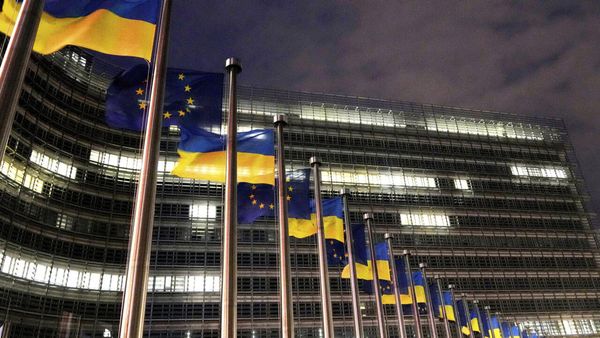Soon after their run to the semi-finals of the 2018 World Cup, England travelled to Seville for a UEFA Nations League game against Spain and blew their opposition out of the water with a stunning first-half display.
It was easily the best 45 minutes of football produced under Gareth Southgate and offered rebuke to those who thought the relative success of Russia a fluke, spouting the now familiar refrain: that England had lost to the first good team they had played.
Off the back of another World Cup exit where, actually, that criticism painted a more accurate, if not fully coloured-in picture, Thursday night’s win in Italy was another first-half to suggest that heading into a fourth tournament cycle under Southgate, this is a team still on the up.
England led their hosts by two goals the break and would have deservedly matched the 3-0 cushion they held at half-time in Seville had Jack Grealish not tried to be too cute in steering wide at the end of a wonderful move, with Gianluigi Donnarumma out of the picture.
But if England are to go all the way in Germany less than 18 months from now and realise the potential that clearly lies within this crop of players in lifting a major trophy, then perhaps the second 45 minutes in Naples that will be looked back on as similarly significant in the Southgate era.
True, the stakes in clinging on for three points were not sky-high: defeat would not have been an ideal start to England’s qualifying campaign, but would hardly have been terminal either, given half the continent will end up at the tournament eventually. But matches like these can take on a life of their own and the reaction of England’s players at the full-time whistle told that the manner of victory meant as much as the three points they had set out for at the first.
Against good opposition - and Italy, despite failing to reach Qatar, showed themselves to be a decent team after the break - matches seldom turn against England and do not end up running away from them.
This one threatened to do so here, as England returned after the interval and never rediscovered the dominance they had displayed from about the fifth-minute.
Mateo Retegui halved the deficit on debut, Luke Shaw was sent off for two quick yellows and several other players were walking tightropes having completed the fairly straightforward task of rubbing up card-happy referee Srdjan Jovanovic the wrong way. Some of the bookings dished out for time-wasting were harsh in the extreme - get Mr Jovanovic on duty at the Emirates or the Etihad one weekend and the visiting side are liable to run out of goalkeepers - but England were too slow to cotton onto his pet-peeve.
Italy created openings, though few clear-cut chances, and England briefly looked on the brink of losing their heads, both with the state of the officiating and in forgetting how to keep the ball. In the first-half, the outstanding Declan Rice and Jude Bellingham had bullied the same Italian midfield that ran the Euro 2020 final, but could not assert the same authority thereafter, with Kalvin Phillips short on minutes and running out of puff.
Southgate, though, reacted and on this occasion got his substitutions right. Removing Phil Foden, only just on, after Shaw’s dismissal looked bizarre for a moment, until Bellingham and Bukayo Saka - the other candidates for sacrifice - were hooked minutes after in changes seemingly already prepared.

Kieran Trippier’s experience helped restore a degree of calm, while Conor Gallagher added energy to a flagging midfield and broke the game up well. Reece James, on as a nominal right-winger, helped double-up on raiding full-back Leonardo Spinazzola, who had abandoned his defensive duties in a bid to capitalise on the man advantage.
Strangely, since they were for a time a Three Lions calling card, England have not had to deal with the adversity of a tournament red card under Southgate, nor have they successfully manned the barricades in late defence of a slender lead. In fact, the only knockout game won by the odd-goal in the current era was seen out with a weirdly serene spell of keep-ball against a spent Danish side in extra-time at Wembley.
Still, should either scenario crop up at the Euros next summer (and, let’s face it, one or the other is probably overdue) England will have this night on which to call.







